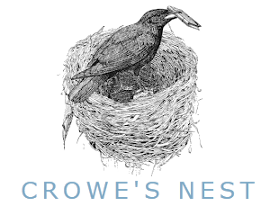I think it's high time for some more posts on Writing Middle Grade! What say ye?
The biggest key thing in writing for a middle grade audience is LETTING THE KIDS SOLVE THE PROBLEM. Seriously. Issue número uno. And sometimes that's easy. But sometimes.... not so much. Why? Because responsible adults wouldn't let the kids be the ones to go off and save the world / do the really dangerous things / tackle issues all by themselves. They step in and help. It's what we do.
So the trick is to get them away from the parents or other responsible adults in their lives. For however long is needed in the story for them to really solve the problem on their own.
How do we do that? Make them all orphans? After all, Roald Dahl said, "Kill the parents!"
And that is definitely one way. For the next 8 days (skipping weekends and Thanksgiving, of course!), I'll talk about the eight different methods you can use to separate the kids from the parents/guardians so that they can be the ones to save the day.
First up: Let's go the route of Roald Dahl's suggestions, and talk ORPHANS!
The Orphan
Characteristics:
Parents are usually dead or missing, and the child is either being raised in an orphanage, a foster home, or by absent / unfit replacement parents.
Examples:
In
The Boxcar Children, the kids are orphaned and living by themselves in an abandoned boxcar, figuring out everything they need to survive. In
The False Prince, Sage is living in an orphanage before he gets dragged into his adventure. In
Harry Potter, Harry is an orphan living with mean relatives. All of them have lost their parents, and are trying to make it on their own.
Pros:
- The parents are conveniently out of the picture.
- You get instant sympathy for your character.Who doesn't feel bad for a kid who doesn't have parents? We pretty much instantly root for any kid in this situation.
- There's more at stake, since no one is coming to their rescue.When they don't have parents somewhere who care for them, there's no hope that they'll get saved by someone else.
- Kids find the concept fascinating. Think about when you were a kid. You probably wondered several times what it would be like if you were an orphan, and had to do everything on your own-- and had the freedom to do whatever you wanted whenever you wanted.
Cons:
- Because having orphans as main characters is so prevalent, it makes it harder to feel more fresh and integral to the story.
- To be able to function on their own, many times the character ends up thinking and acting like an adult, which creates a credibility gap.
Things to look out for:
Look at the reasons why you want to make your character an orphan. Is it integral to the plot? Is it so that you can force the character to grow up faster? To give them more responsibility? To leave them isolated and wounded and more vulnerable?
Or is it just a convenient way to get the parents out of the way?
It will be more compelling when there is a good reason for them to be parent-less.
Check in tomorrow, when we'll talk about the Absent/Busy/Bad parent. Until then, happy writing, all!
And if you live in Central Utah and want to get a jump on your Christmas shopping by getting SIGNED BOOKS (the best Christmas present ever, right? :)), I'll be hanging out with 10 other authors tonight at the Orem, UT Barnes and Noble. If you can, come by and say hi!















































